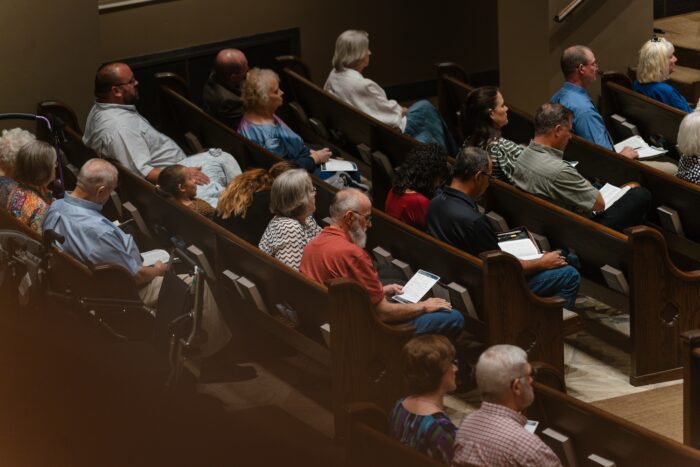Originally published January 10, 2020.
Are the categories of transcendence and immanence important considerations for worship planning and design? The answer is a resounding yes. Not only are they important, but they are also of paramount importance for a worship pastor’s consideration as he contemplates and plans worship services.
Worship in the free church runs the risk of being impoverished from a lack of biblical groundings. I do not endorse meaningless ritual and am not proposing that all free churches embrace liturgical structures. What I am proposing, however, is that order and sequence are consequential. Order and sequence are defining principles in every tradition, including the free church tradition. Order and sequence establish the relative importance of the elements that are included in a worship service. Order establishes the beginning place of worship and, therefore, is immensely influential to the overall direction and ultimate destination of any worship journey. What comes first in an order of worship interprets and establishes the context for every other element.
My ultimate recommendation is this: worship pastors in the free evangelical tradition, because they are not governed by set liturgical formulae, should seek other scriptural guiding principles that can inform the goals, values, and objectives that influence how they select and order the liturgical elements that will comprise the worship offering of their congregations Sunday by Sunday. A service of worship properly constructed deepens the congregants’ understanding of God and helps them to accurately perceive themselves and their world as God’s creation.[1] Though little is said about the form of New Testament worship, liturgical practices can definitely be inferred from Scripture in both Testaments. Since Scripture is the sole and sufficient rule of faith and practice, worship pastors may discern biblical paradigms and guiding principles to help construct God-glorifying, Christ-honoring services of worship.[2]
For the free church, perhaps the most important theological substructure to be applied to worship planning and design is that of the rhythm of transcendence first and immanence second. Worship is affected, empowered, enhanced, or diminished by the manner in which the worshiper conceives and perceives God. In the words of Allen Ross in Recalling the Hope of Glory, “The greater our appreciation and apprehension of the majestic God whom we say we worship, the greater will be our reverence, adoration, and service.”[3]
May worship leaders be encouraged that what they do week-by-week is far more consequential than simply creating a set list. Their goals, values, and objectives—indeed, their own view of God—are shaping an entire congregation’s understanding of God, themselves, and their world. How a service begins matters. Sequential order matters. Spoken words matter. The role of the worship leader is decidedly influential to the corporate and individual worship lives of the Bride of Christ. May worship leaders find the rhythm of transcendence then immanence a strong biblical paradigm upon which worship services may be formulated and led to the glory of God.
[1]Don E. Saliers, Worship as Theology: Foretaste of Glory Divine (Nashville: Abingdon Press, 1994), 37.
[2]Simon Chan, Liturgical Theology: The Church as Worshiping Community (Downers Grove, IL: InterVarsity Press, 2006), 30.
[3]Ross, Recalling the Hope of Glory, 41.







